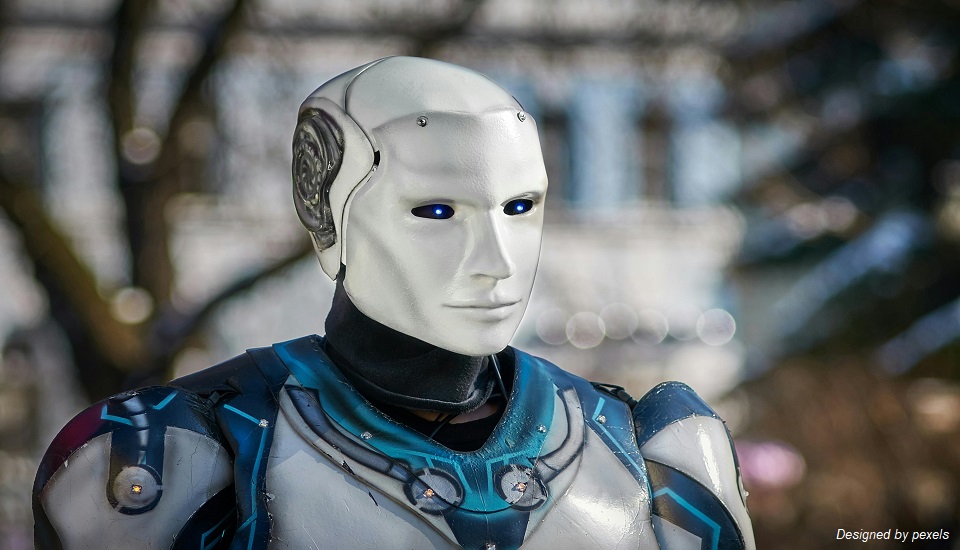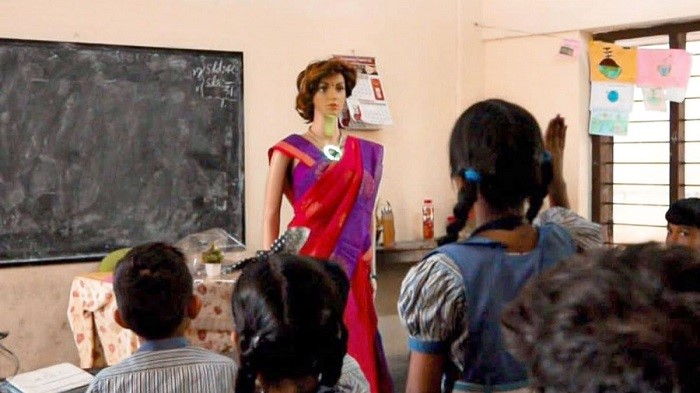Meet India's Very First AI Humanoid Robot Teacher - Gone Viral
10th July 2024

Did You know Kerala’s education sector has introduced India’s first AI humanoid robot teacher?
IRIS is grabbing attention across social media platforms now. The firm Makerlabs Edutech in collaboration with Thiruvananthapuram’s KTCT Higher Secondary School has developed it and the saree-clad humanoid is called ‘Iris’. Iris was also a major section of the 2021 NITI Aayog project Atal Tinkering Lab, which aims to increase the various extracurricular activities in school.
Statistics suggest that India has nearly 265 million students in school, and a shortage of teachers is reported countrywide. This innovative blend of advanced technology and cultural heritage has captured the attention of educational institutions and the public alike globally.
A Ground-breaking Step in Indian Education
Dressed in a sari, IRIS symbolizes a unique blend of modern technology and tradition, aiming to create a familiar and contented environment for students.
- IRIS is offering personalized voice assistance with interactive learning experiences.
- Equipped with advanced features, Iris offers personalized learning experience.
- IRIS is designed to deliver explanations and educational content
- IRIS empowers teachers to offer engaging and effective lessons like never before.
- IRIS has a cutting-edge voice assistant for instructive settings.
- Iris is a multilingual AI instructor.
- Iris has wheels for augmented mobility that help to make the teaching process more interactive.

The Impact of Humanoid Robots in Education
The combination of humanoid robots in education is definitely revolutionizing traditional teaching approaches and transforming the learning experience for students. Here are some of the key benefits:
24/7 Accessibility
Unlike human teachers, robots can be accessible at any time, providing students with continuous access to educational resources as well as support. This is mostly beneficial for after-school study sessions, homework help, and exam preparation.
Support for Special Needs Education
Humanoid robots can be planned to support students with special needs by providing customized lessons, repetitive practice with a non-judgmental presence. This can improve learning outcomes for students with special needs.
Connecting Educational Gaps
In areas with a shortage of skilled teachers, humanoid robots can fill the gap, ensuring that students still receive a quality education. This is particularly valuable in remote or underprivileged regions where access to education may be restricted.
Enhancing Language Learning
Humanoid robots can support in language education by providing immersive and interactive language practice. They can engage in talks, precise pronunciation, and offer real-time feedback, enhancing language gaining for students.
Reducing Teacher Burnout
By handling some of the more repetitive and administrative tasks, humanoid robots can decrease the workload on teachers, helping to improve stress and prevent burnout. This can lead to a more positive and productive educational environment.
Personalized Learning
Humanoid robots can deliver tailored educational experiences to individual students. By analyzing each student’s learning style, pace, and development, these robots can adapt their teaching methods and materials to meet the unique needs of every learner.
Engaging and Interactive Lessons
Armed with advanced multimedia capabilities, humanoid robots can create interactive and engaging lessons. They can incorporate videos, animations, quizzes, and games to make learning more dynamic and enjoyable.
Promoting Technological Literacy
Interacting with humanoid robots helps students develop familiarity and comfort with advanced technology. This exposure can spark interest in STEM (Science, Technology, Engineering, and Mathematics) fields and prepare students for future careers in technology-driven industries.
The Future of AI in Indian Education
Needless to say, the introduction of IRIS into the Kerala education system heralds a new era of learning, where cultural heritage and cutting-edge innovation come together to shape the future of education. The adoption of humanoid robots in education brings numerous benefits, from personalized learning experiences to enhanced technological literacy. The Master of Arts in Education with Teaching Technology program has been designed to cover the diverse aspects of teaching with technology.
As these robots become more advanced and accessible, they hold the potential to significantly improve educational outcomes and create a more engaging, efficient, and inclusive learning environment for students worldwide.
We believe education should be accessible to everyone. That’s why we don’t charge for our blogs. Find the right course that will help you in your career with us, contact us at 1800–212–6400. You can mail us at act@asiancollegeofteachers.com
Written By: Sanjana Chowdhury